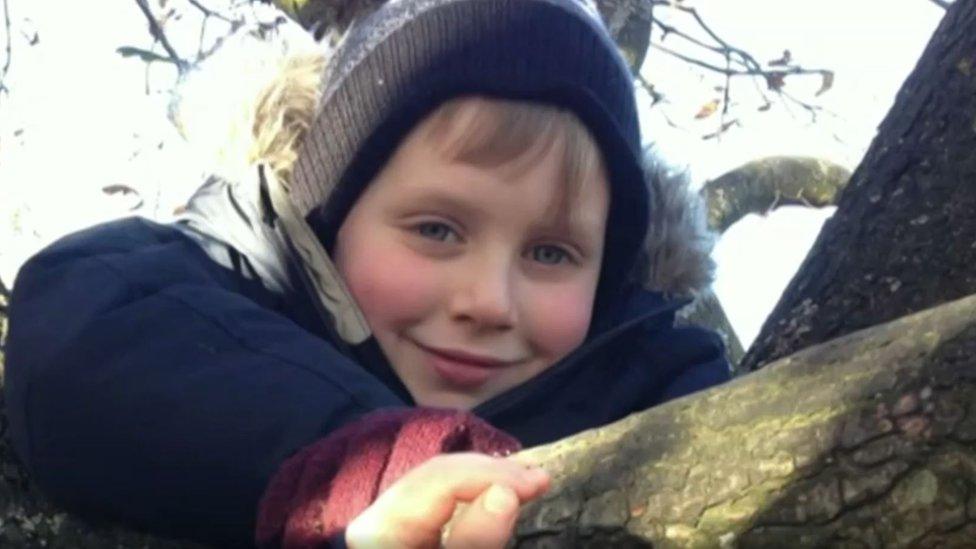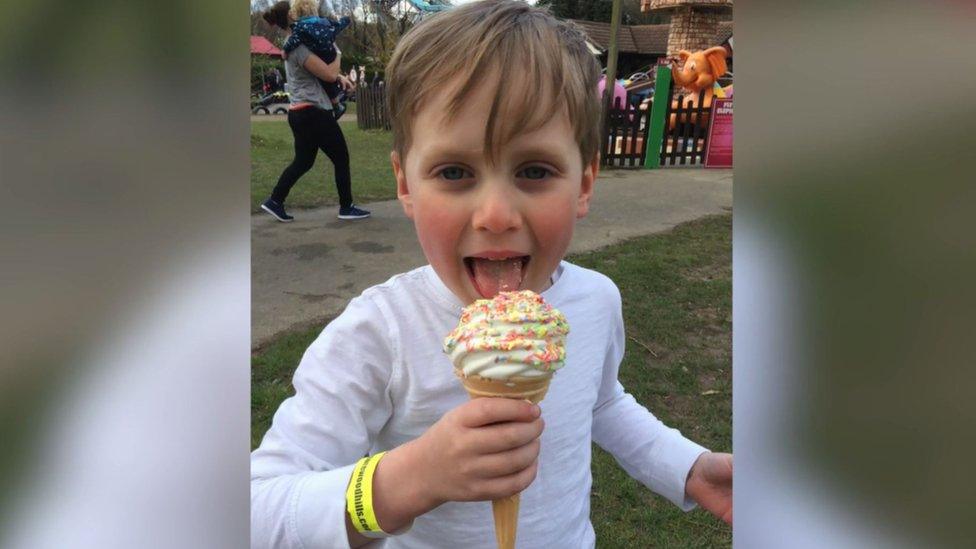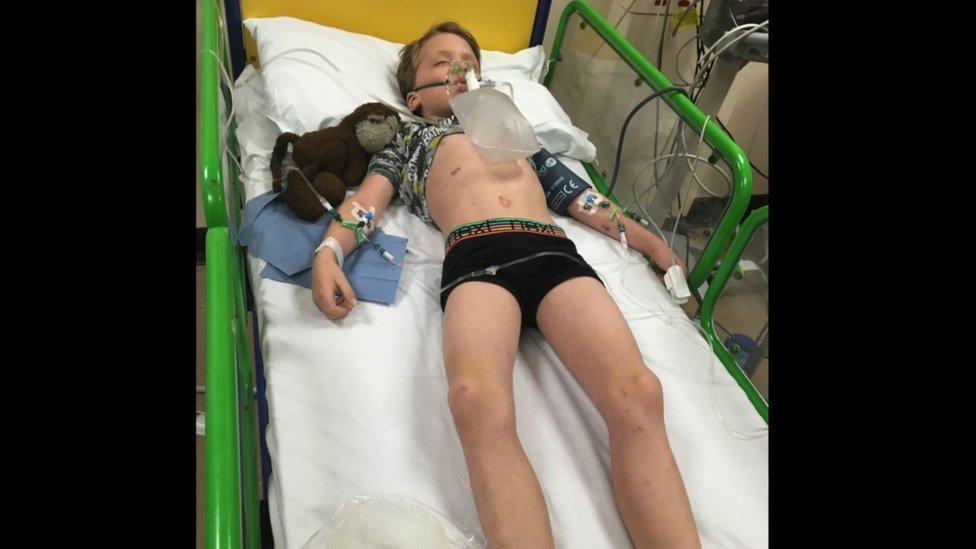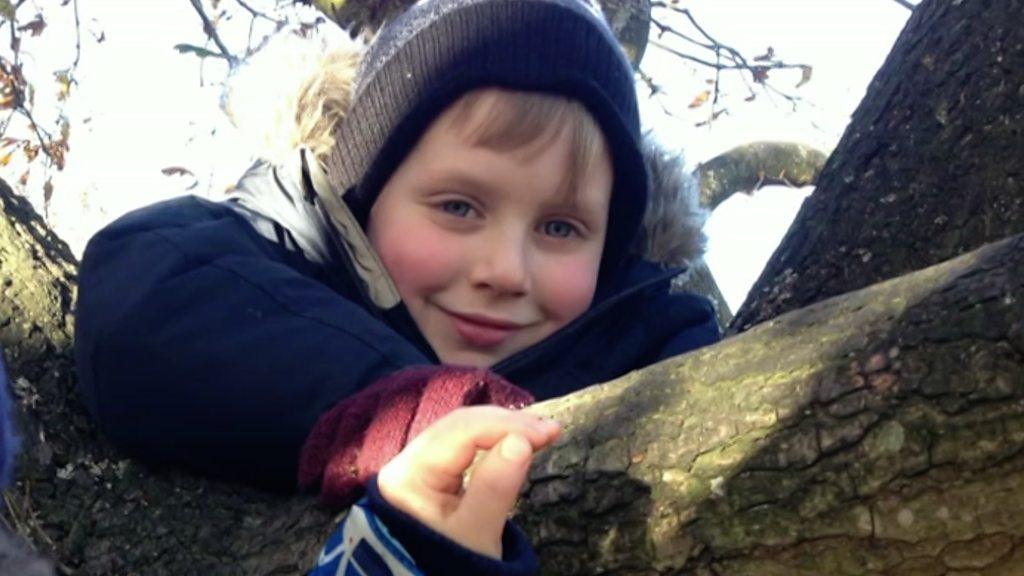Oliver Hall inquest: Doctors sent boy home hours before death
- Published

Oliver Hall died less than 24 hours after contracting meningitis B
A GP had no reason to question the work of a trainee doctor who assessed a six-year-old boy who died from meningitis hours later, an inquest heard.
Oliver Hall, of Halesworth, Suffolk, died the day after his symptoms began in October 2017.
Dr Daniel Treen said he had no concerns with the work of Lester Branganza who gave the boy a 15-minute examination but did not detect the infection.
The inquest was previously told faster diagnosis could have saved his life.

Ollie had been assessed by paramedics and GPs the day before he died
Oliver, known as Ollie, had been taken to the surgery by two paramedics after his mother Georgie had called the NHS 111 helpline.
Following the examination at the Cutlers Hill surgery, Mrs Hall was told Ollie was fit to go home.
Dr Treen said he had arranged to see Ollie after Dr Braganza's assessment, then talk the matter through with his junior colleague.
He said he had no sense of things going wrong and Dr Braganza's work to that point had been "well above what had been expected".
"If I had picked up anything which added to what I was being told I would have investigated that to satisfy myself," he told the inquest in Ipswich.

Ollie Hall was ranked at the highest risk level on his arrival at hospital
When Ollie was brought back to the surgery a second time that evening, Dr Treen was told no ambulance was available to take him to hospital.
His parents drove him to the James Paget University Hospital, where he died early the next morning.
Chris Hewitson of the East of England Ambulance Service Trust said the lack of an ambulance had been because of a call-handling system which had since been updated to trigger a higher category of response in such cases.
The inquest also heard that when Ollie arrived at hospital he was given the highest possible risk score.
A team arrived at midnight to take him to Addenbrooke's Hospital in Cambridge but he went into cardiac arrest and could not be revived.
The inquest continues.
- Published3 June 2019

- Published8 December 2017
